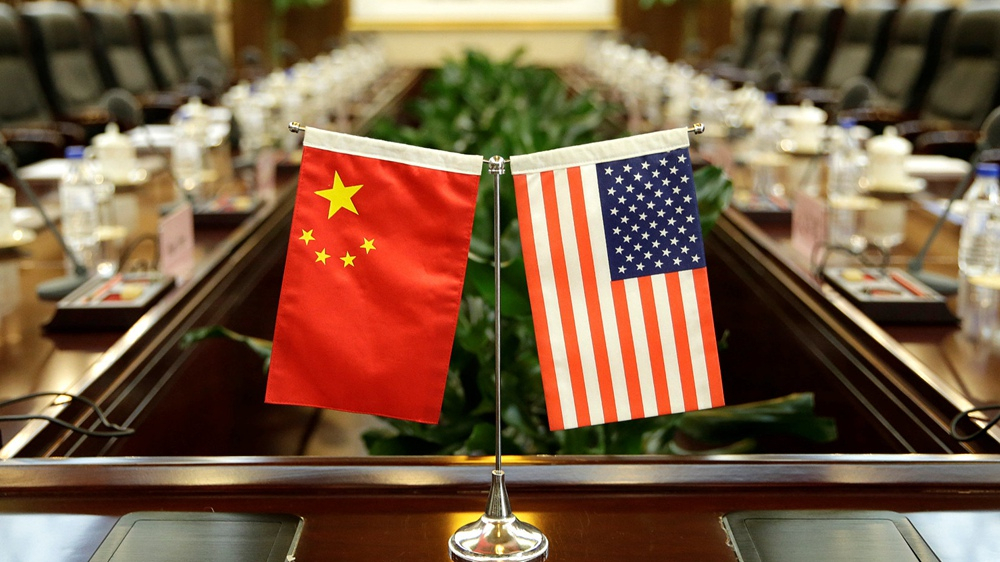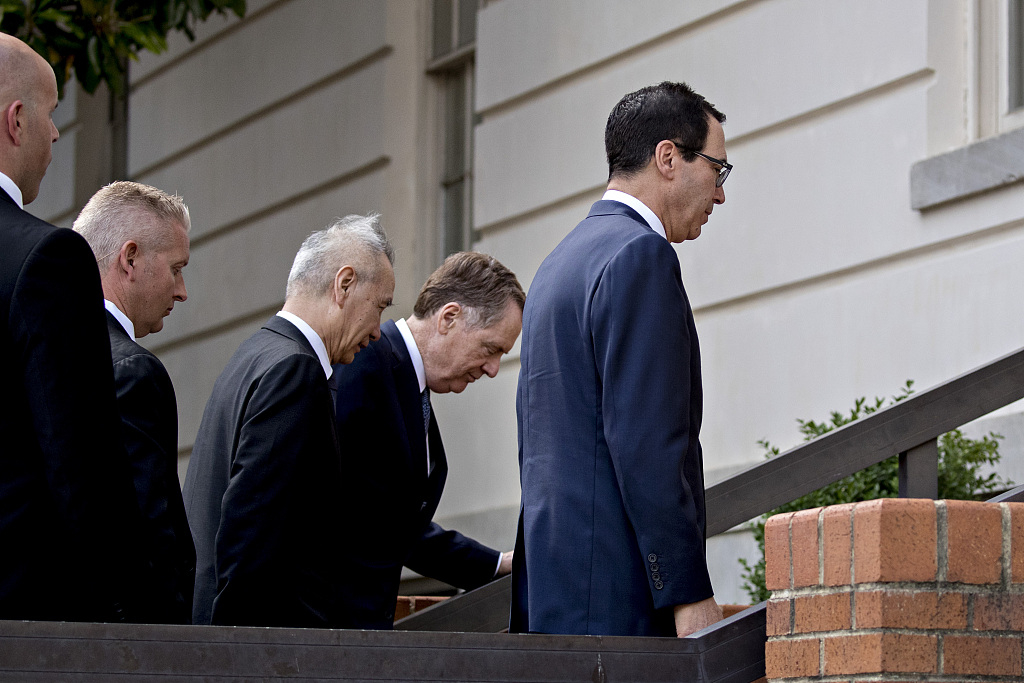
Editor's note: John Gong is a research fellow at Charhar Institute and professor at the University of International Business and Economics. The article reflects the author's opinions and not necessarily the views of CGTN.
It was officially announced that Vice Premier Liu He will lead a Chinese delegation to the U.S. for a new round of high-level economic and trade consultations from October 10 to 11.
I do sincerely hope some progress will be made this time, or even better, maybe with a pleasant surprise, an agreement can be reached. But let me honestly spell out the reality here: the Chinese delegation is facing an uphill battle, as the latest developments appear to be working against its mission.
The first one is the U.S. Commerce Department's announcement of putting 28 Chinese institutes and companies on its entity list, including eight high-tech companies, for an unwarranted reason related to matters in China's Xinjiang Uygur Autonomous Region. That means these companies would be generally barred from doing business with American companies for both exports to and from the U.S.
Although this decision is expected by the market for some time, the timing of the announcement could not be worse. Commerce Secretary Wilbur Ross said this is unrelated to the upcoming trade negotiation, but his intention of sabotage of the trade talk is thinly veiled.
Next is the Houston Rockets general manager Daryl Morey's tweet regarding Hong Kong, which has caused an uproar among Rocket fans in China. NBA has a huge market in China for something like four billion U.S. dollars in revenue annually, including broadcasting rights and sold merchandise.
Sports channel of China's national broadcaster has announced that it will suspend broadcasting NBA games on Monday after it banned connection with the Rockets two days ago, along with the Chinese Basketball Association and a number of commercial organizations. I hope we will not go down the dangerous path of further escalation.
Last but not least, the impeachment cloud is currently hanging over Washington, particularly in consideration of the fact that Hunter Biden's business dealings in China are asked to be investigated by the U.S. President Donald Trump.

Steven Mnuchin, U.S. Treasury secretary, Robert Lighthizer, U.S. trade representative, and Liu He, China's Vice Premier, walk in to the Office of the U.S. Trade Representative in Washington, DC, U.S., May 9, 2019. /VCG Photo
Steven Mnuchin, U.S. Treasury secretary, Robert Lighthizer, U.S. trade representative, and Liu He, China's Vice Premier, walk in to the Office of the U.S. Trade Representative in Washington, DC, U.S., May 9, 2019. /VCG Photo
Hunter Biden is ex-U.S.-vice-president and the current leading Democrat presidential candidate Joe Biden's son. It is an intriguing question to ask what the impeachment's impact would be on the trade talk. But again, my assessment might be disappointing to the hopeful.
Trump's presidency has been shrouded in suspicion of his ties to foreign interests from the very beginning, and that has implications for his foreign policy. He has long been sensitive about appearing politically weak to his foreign counterparts.
Now, it's precisely those interactions with world leaders that are coming under scrutiny from the Congressional Democrats. With respect to China, the consensus in Washington these days, no matter which political inclination one is associated with, is all about being "tough" on China.
Trump cannot appear not to be tough on China, given his boasting about it to the American public everywhere he goes at political rallies, and this will impose a significant political constraint on a possible compromise he can make in the trade talk.
With this impeachment process going on, he further needs to demonstrate the absence of any inkling of quid pro quo. It probably doesn't matter anyway in terms of lessening any imperative on Trump to show he is tough on China.
Sadly the fundamentals indicate that both sides need a trade deal more than ever. For the U.S. side, Trump badly needs one that saves American farmers and alleviates visible pain to American households, which will all have implications for his re-election chances next year.
The imposed tariffs so far have been mostly on immediate goods that do not hit consumer pockets directly. But there are still scheduled tariffs, if the talk breaks down, which will start to hit Chinese exports of cell phones, laptops, computers, and other electronic devices. By then, Americans will start to feel the pain directly.
In conclusion, my hope is that Washington will set aside those unpleasant events so far and concentrate on the fundamentals instead. We need a trade deal, and it is now or never.
(If you want to contribute and have specific expertise, please contact us at opinions@cgtn.com.)